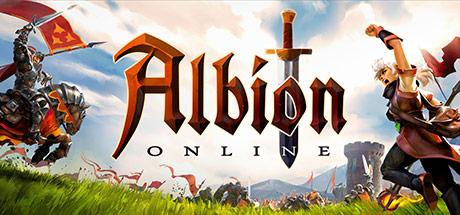
Albion's vast open world is made up of hundreds of zones spanning five different biomes across two massive continents. It can all be a bit overwhelming, so we'll break it down with the following sections:
- The Five Biomes[/*]
- The Two Continents[/*]
- Albion's Cities[/*]
- Getting Around[/*]
Albion's Five Biomes
Albion's open-world zones fall under one of five biomes – Steppe, Forest, Swamp, Mountain, or Highlands – which determine which resources and creatures it contains. In addition to their own distinct visuals and terrain, each biome contains three of the five major natural resources:
- Steppe: hide, fiber, ore[/*]
- Forest: wood, hide, stone[/*]
- Swamp: fiber, wood, hide[/*]
- Mountain: ore, stone, fiber[/*]
- Highlands: wood, stone, ore[/*]
- Fish can be found in all five biomes[/*]

The Royal Continent: The Heart of Albion
After you finish the tutorial (which takes place on its own separate mini-island), you'll be transported to the Royal Continent to start your adventure. The Royal Continent is Albion's massive southern landmass, and is home to the game's five Starter Towns (where you'll first land after the tutorial) and the six Royal Cities.
The Royal Continent contains blue, yellow, and red zones, but no black zones (see Zones and Flagging for more info). Thus, while full-loot PvP is possible, the 100% unflagged, always-hostile black-zone PvP is limited to the Outlands.
The Outlands: Albion's Wild Frontier
The Outlands is Albion's major northern landmass, accessed from the Royal Continent via five Realmgates in each of the five Royal Cities. All zones in the Outlands are black zones, meaning "winner takes all" rules apply, and any player can attack any other player with no reputation loss. The Outlands are where much of Albion's guild warfare takes place, with guilds battling over territories and placing Hideouts.

Alternate Realms
The open world of Albion includes realms that exist on alternate planes outside of mapped regions. These realms are unstable, and feature unpredictable zone connections, group size limitations, and varying entry/exit conditions.
Roads of Avalon: The Roads of Avalon are a network of hundreds of regions, accessed via portals that open at random throughout the open world. Once inside, Black Zone PvP rules apply and any portal found could lead to any part of Albion's open world – or further into the Roads – with no connection being permanent.
The Mists: A magical region that can be entered through short-lived portals. These areas do not correspond to any particular biome and can contain all resources. You can also find one-way connections to different parts of the world or a portal to the City in the Mists: Brecilien. The Mists also feature unique creatures found nowhere else, which have a chance to drop rare and valuable artifacts when defeated.
Albion's Cities and Towns
Starter Towns: Each major biome region on the Royal Continent is home to one of five "Starter Towns": Steppe Cross, Mountain Cross, Swamp Cross, Forest Cross, and Highlands Cross. These towns offer basic marketplaces and crafting/refining stations for players who are just starting out.

Royal Cities: Each of the five Royal Continent biome regions also corresponds to a Royal City:
- Lymhurst (Forest)[/*]
- Bridgewatch (Steppe)[/*]
- Fort Sterling (Mountain)[/*]
- Martlock (Highlands)[/*]
- Thetford (Swamp)[/*]
In addition to their own unique crafting and refining bonuses, the Royal Cities offer plots of land for sale, access to private and guild islands, local player-run marketplaces, the chance to join the city's Faction and fight in Albion's Faction Warfare system, and (with the exception of Caerleon) Realmgate access to the Outlands.
[/url]Rests (Outlands Towns): While the Outlands are generally wild and hostile, three small towns called Rests – Merlyn's Rest, Morgana's Rest, and Arthur's Rest – offer a chance to buy and sell goods, craft items, refine resources, and log off safely in the midst of Albion's most dangerous zones.

Getting Around Albion
On foot or mounted: The best way to see what Albion has to offer is to simply head out into the world, either on foot or on a trusty mount. Whether you have a destination in mind, or are just exploring, you're sure to encounter something new each time you set out. You'll generally want to bring a mount along for the added speed and carry weight they offer.
Fast travel: In Albion, fast travel is limited to specific destinations, and can only be initiated via the Travel Planner or Island Merchant NPCs. As trade and transport are essential parts of Albion's economy, fast travel to most destinations is only free when your inventory is completely empty, and becomes dramatically more expensive with each additional item.
Realmgates & Portal Towns: Each of the five Royal Cities has a Realmgate leading to a Portal Town that shares a Marketplace and a Bank with its corresponding city. These each then lead into a different part of the Outlands.
